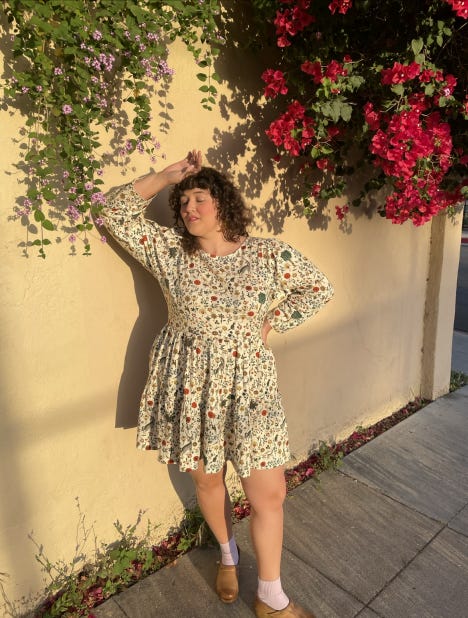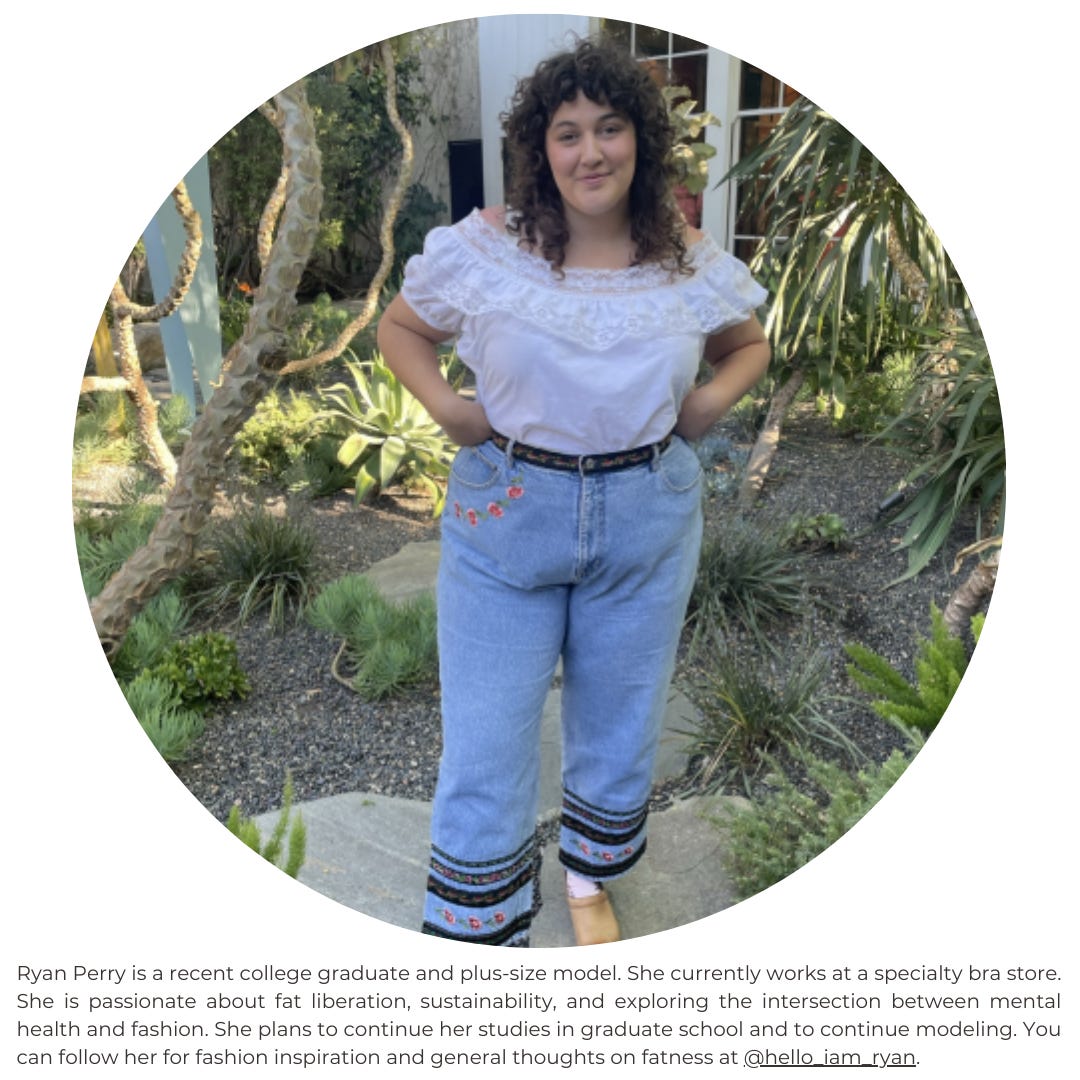Welcome to The Learning Curve, a weekly newsletter to share our understandings, joys, and learnings through personal narratives. Our writers span many generations, cultures, identities, and ethnicities.
We’d like to welcome our recent new subscribers! If you haven’t subscribed yet, please join us!
Happiest Thanksgiving to you!
I am thrilled to introduce Ryan Perry as the author of this week’s letter. As is the case with many of our featured writers, Ryan is one of my former students. Even as a teenager, Ryan conveyed a depth of understanding uncommon among her peers. It has taken me much too long to realize that many times that wisdom beyond one’s years is a signal that that person has been on a journey that includes emotional pain. Through reading Ryan’s letter, I am able to see (at least partially) what she was struggling with as a younger version of herself. Ryan *glows* with confidence, with pride, and with self-adoration. I love how hearing one person’s journey can help us with our own, and I hope that hearing about Ryan’s journey from self-uncertainty to self-assuredness inspires you to allow yourself to thrive in your own body. —Emily
Click play to hear Ryan read today’s letter.
“To do the useful thing, to say the courageous thing, to contemplate the beautiful thing: that is enough for one man’s life.”
T.S. Eliot
I never thought I could come to embrace the word fat. For many years of my life, “fat” has been a dirty word; it was the worst thing I could ever think to be called. I even know people who would rather be dead than fat. Yet today, I self-identify as fat.
I remember the first time I became aware of the way my body looked. I was in third grade and someone called me fat. I hadn’t even realized that fat was anything more than a descriptor like “tall” or “soft.” That bright hot feeling of embarrassment followed by a heavy pit in my stomach I identified as shame. Shame about my body quickly turned into guilt. My eyes were suddenly opened to diet culture and the world of people around me who hated their bodies.
As I got older I watched my mother weigh her chicken and count her almonds. I watched my friends pass up ice cream at parties that they previously would not have. I watched myself skip meals and deny the things I really enjoyed. I could not become a fat person. I villainized fatness. I villainized double-digit sizes; If I reached a size 10 I thought I would no longer be worthy of love and respect. I watched countless movies and T.V. shows in which fatness was either made fun of or it was the worst thing you could call a person. I used to constantly compare myself to every woman in the room. I would rank us from least fat to most fat because that was the only quality that mattered to me. If someone was thin that automatically meant that they were also smarter, prettier, and more hardworking. I even used to fantasize about cutting off the fatty parts of my body—my inner thighs, my stomach, and my arms. I fantasized about how free I would feel if my stomach were flat. I fantasized about taking up less space both physically and emotionally. All I wanted to do was shrink myself and, almost every single fat person I know has had these same fantasies.
Today, I am a fat person. I have rolls and not just when I sit down. My arms are big and soft, and my legs jiggle when I walk. The strangest thing is that I love myself more than ever. I became what so many fear and I’m okay. I’m better than okay. I am thriving. The word “fat” means what it meant to me when I was eight years old, it is just a descriptor. It has no moral weight to me at all. My body is fat. My hair is curly. My fingers are long. My eyes are hazel. These are all things that are just true.
So why do I love myself now? The thing about being fat is that it is also freeing. My body is outside the bounds of what society deems desirable so, suddenly things that I used to care about don’t matter at all. I am not concerned about dressing desirably, acting desirably, or being the perfect picture of femininity. Fatness isn’t scary. It doesn’t make me “less than.” I can live a full life. I can hike, rollerskate, dance, laugh, eat, travel, swim, and so much more in my fat body. I can love and be loved in my fat body.
I use the word fat because when I no longer villainize the word fat, I begin to no longer villainize fatness itself. When I stopped villainizing my own body, I stopped villainizing and critiquing the bodies around me. I am a better friend to myself and others because I am no longer constantly comparing myself. Instead, I can listen to a person and not think at all about the body they have. We are so much more than our bodies, and I am working on placing even less moral value on my body; but, until then, embracing the word fat is a comfortable and progressive place to be for me. Even if you are not a fat person, using neutral descriptors for yourself can be freeing. Our bodies are not a moral indicator. Our bodies are just our bodies. They are vessels to carry us through life and hopefully thrive.
Ryan’s 5 Favorite Things
Matcha. I love the taste along with the health benefits. I’ve linked to Golde, my favorite brand, which is black woman-owned!
Olipop sodas. I struggle with chronic nausea (thanks, covid) and these sodas really help. Also, they’re just plain tasty.
Wray NYC. I can’t think of anyone who wouldn’t instantly fall in love with this sustainable, women-owned brand’s effortless silhouettes and seriously cool prints.
Glossier Cloud Paint. I love liquid blush because it gives a more dewy look than the typical powder, this one is buildable and easy to use. I use the shade “storm.”
Baggu Packable Sunhat. These hats are cute, compact, and protective—perfect for a hike, beach day, or reading at your favorite park.
With gratitude,
Ryan Perry
P.S. Our bodies are instruments, not ornaments, letting go and making peace with our bodies, and finding true nourishment.








What a wonderful, sometimes visceral essay. Thank you for sharing. I’ll have to try ollipop, and Wray NYC has a flower printed mock neck that caught my eye 🌼